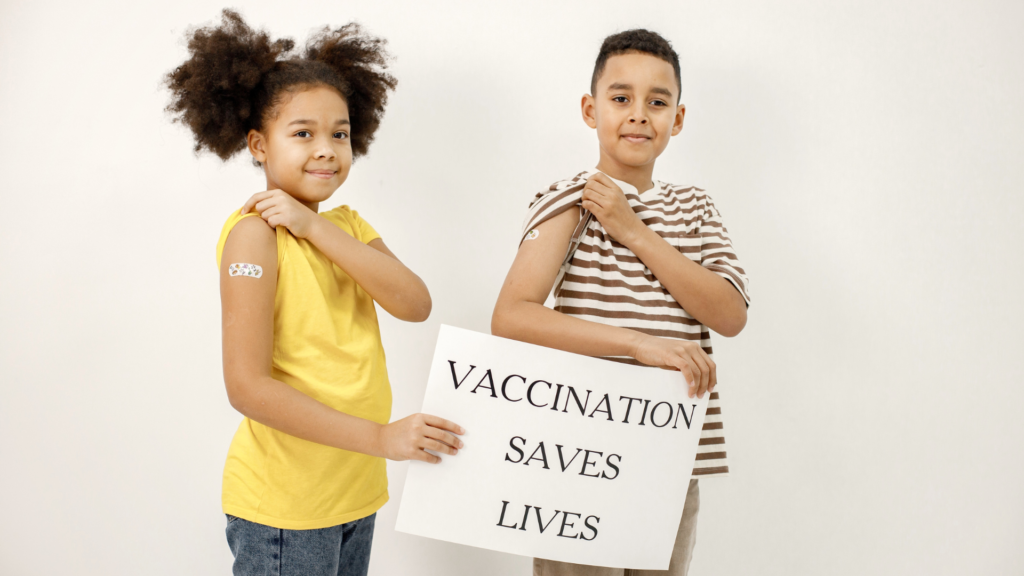Vaccines have revolutionized how we combat infectious diseases, saving countless lives and preventing the spread of deadly illnesses. From smallpox to polio, vaccines have played a crucial role in eradicating some of the deadliest diseases known to humanity. But despite their proven effectiveness and safety, there are still pockets of skepticism and misinformation surrounding immunization.
In this blog post, we’ll explore the power of vaccines and how they’ve helped shape our world for the better. So buckle up and get ready to dive into the fascinating world of immunization!
What is a Vaccine?
A vaccine is a preparation of dead or weakened viruses or other diseases used to help the body build immunity to those viruses or diseases. Immunization helps protect people from disease by creating an immune response in the body. Vaccines are made from live, weakened, or dead viruses and are given to people as shots.
How Vaccines Work?
Vaccines stimulate the body’s immune system to recognize and attack a disease-causing agent. The most common way vaccines are made is by growing weakened or dead forms of a virus in a laboratory, then injecting them into animals who will then develop immunity to that virus. Vaccine manufacturers also create “adjuvants,” which help the vaccine stimulate an immune response.
Once a person is vaccinated, their immune system is prepared to fight off infections from any diseases for which the vaccine has been designed. If they get sick with one of these diseases, their immune system can mount an effective response against it because it has been trained to do so after being exposed to the vaccine’s weakened or killed form. Vaccines have saved millions of lives since they were first developed over 50 years ago.
The History of Vaccines
The history of vaccines is a story of innovation and progress. The first vaccine was created over 200 years ago, but it wasn’t until the 20th century that effective vaccines were developed and mass-produced. Today, vaccines are one of the most effective tools for preventing disease.
Vaccines work by protecting people from diseases. When someone is infected with a virus, the body produces antibodies to fight off the infection.
Vaccines contain pieces of the virus or other organisms that have been weakened or “modified” so that they will not cause illness in a person. The body recognizes these pieces as foreign and attacks them, preventing the person from getting sick.
There are several types of vaccines available today: oral (included in food), injectable (a shot given into a muscle), live attenuated (dead but “killed”) virus, and recombinant (made using genetic engineering). Each type offers different advantages and disadvantages for use in different situations.
One important benefit of vaccinating children is that their immune systems are still developing and are more likely to respond well to vaccinations than adults are. This protection against deadly diseases begins during childhood and lasts into adulthood.
In addition, vaccinating pregnant women can protect their unborn babies from serious health complications caused by certain infections during pregnancy, including pre-eclampsia, premature delivery, low birth weight, and even mental retardation.
Types of Vaccines
There are three types of vaccines: dead, live, and adjuvanted. Deadly vaccines kill the virus but do not cause the body to create immunity. Live vaccines help the body create immunity by making the person’s immune system attack the virus.
Adjuvanted vaccines use a substance to help the body create immunity more quickly. There are also modified live vaccines and recombinant DNA (rDNA) vaccines. Modified live vaccines use pieces of the virus to help make people immune. rDNA vaccines use pieces of DNA from a different virus to help people build immunity against diseases.
Some of the most common types of vaccines include those for polio, mumps, rubella, chickenpox, hepatitis A and B, shingles, measles, pneumococcal conjugate vaccine (PCV13), and varicella zoster (chickenpox). Immunization rates have increased over time thanks in part to vaccination programs that have been implemented in many countries around the world. Vaccination is one of the most powerful tools to prevent disease and save lives.
Benefits of Vaccinations
Vaccaries have many benefits, including preventing deadly diseases and saving lives. Here are seven reasons why vaccination is important:
Vaccines Prevent Deadly Diseases
Diseases like polio, measles, mumps, and Hib can easily lead to death without vaccines. In fact, according to the World Health Organization (WHO), vaccine-preventable deaths have been reduced by more than 99% since 2000, thanks to immunization programs.
Vaccines Protect People Against Serious Health Conditions
Some of the most common conditions that vaccines can help protect against include pneumonia, whooping cough, and hepatitis B. Vaccines help prevent millions of illnesses and injuries in children and adults worldwide each year.
Vaccines Save Lives
According to the Centers for Disease Control and Prevention (CDC), every dollar spent on immunization saves $4 in long-term health costs due to avoided hospitalizations, doctor visits, and other expenses associated with illness or injury. In addition, according to a study published in The Lancet medical journal, every 1% increase in population immunity against vaccine-preventable diseases results in a 1% decrease in disease-associated mortality rates.
Vaccines Prevent Chronic Disease Outbreaks
When communities are fully vaccinated against vaccine-preventable diseases, it lessens the chances for outbreaks of these illnesses and other communicable diseases such as influenza. This is especially important during periods of high exposure to unvaccinated populations
Leveraging the Power of Vaccines for a Healthier Tomorrow
Immunization is one of the most critical tools in our fight against infectious diseases. It has prevented millions of deaths worldwide and here in the United States, and it continues to play a vital role in public health.
Vaccines are not perfect, but they are incredibly effective when used appropriately. The benefits of immunization far outweigh any potential risks, so get a shot and be immunized today!

